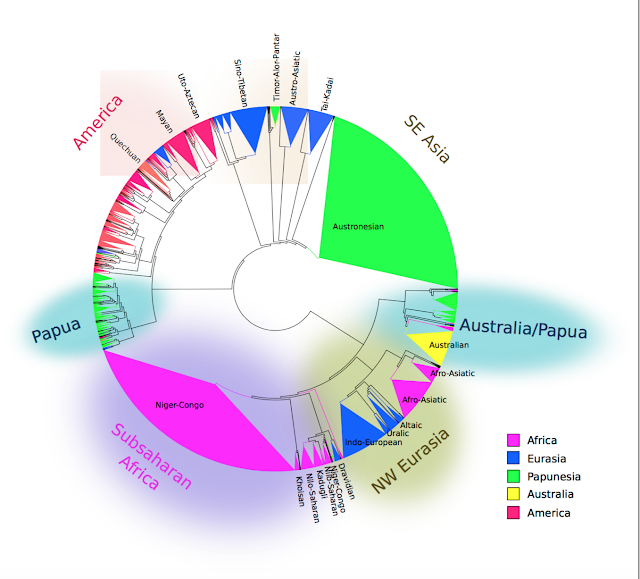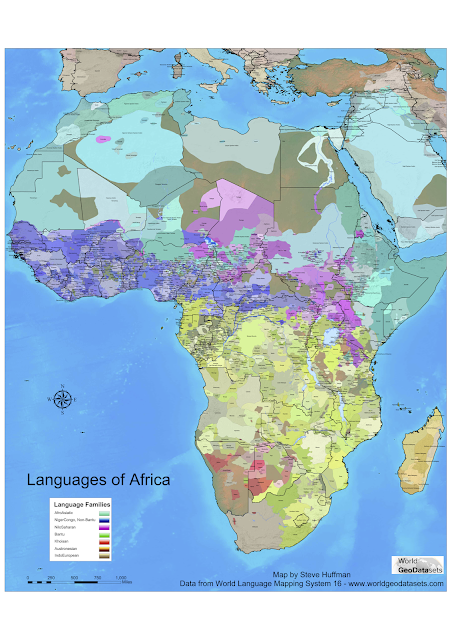Thoughts and results from the generative side of linguistics
Hello everyone,
This posts serves to show non-generativist readers of this blog things going on in the generative sphere that they might like to know about. Mainly:
Sometime ago, we wrote about the conference that was held in Athens in 2015 titled:
It was a conference that gathered many people and were very important matters were discussed, matters that are relevant both to those who describe themselves as "generativists" and those of us who don't.
They had a round-table discussion, and the discussants also submitted written statements prior to the event. These can still be accessed and read, and provide insights into what people consider as crucial issues. Some of the links to these files had since broken, I contacted one of the organisers - Peter Svenonius - and he directed me to pages where the material can still be found.
Voila: summaries of the conference and statements from discussants
He also kindly directed me to this blog posts where they have written up significant mid-level results of generative linguistics. I must confess, I struggle to understand the exact implications of these results because I am not familiar enough with some of the technical jargon.
I'd like to draw your attention to certain excerpts from the round-table discussion that I found particularly intriguing.
This posts serves to show non-generativist readers of this blog things going on in the generative sphere that they might like to know about. Mainly:
- grand challenges, the future of the field
- comparisons between genetic research into human history and historical linguistics
- large cross-linguistic databases
Sometime ago, we wrote about the conference that was held in Athens in 2015 titled:
Generative Syntax in the Twenty-First Century: The Road Ahead
It was a conference that gathered many people and were very important matters were discussed, matters that are relevant both to those who describe themselves as "generativists" and those of us who don't.
They had a round-table discussion, and the discussants also submitted written statements prior to the event. These can still be accessed and read, and provide insights into what people consider as crucial issues. Some of the links to these files had since broken, I contacted one of the organisers - Peter Svenonius - and he directed me to pages where the material can still be found.
Voila: summaries of the conference and statements from discussants
He also kindly directed me to this blog posts where they have written up significant mid-level results of generative linguistics. I must confess, I struggle to understand the exact implications of these results because I am not familiar enough with some of the technical jargon.
I'd like to draw your attention to certain excerpts from the round-table discussion that I found particularly intriguing.
***
there remains an Indo-European bias in the field, which privileges certain data sets as being inherently more theoretically interesting than others.
[...]
it [developing long-term interdisciplinary collaborative research teams that leverage the insights of formal syntactic theorizing] needs to be integrated into graduate training programs so that junior scholars are socialized at the outset to take a broader view of the field.
***
Syntacticians are often highly selective in the way they read and cite, and they adopt main stream proposals without questioning their basic assumptions. At the same time, interesting theoretical work is ignored if it is not fashionable or produced at the right places. This imbalance does not encourage free thinking. Success measures are often one-sided and the pressure for increased productivity does not always outweigh the cost of decrease in depth
[...]
Research on the interfaces requires formal knowledge of more subdisciplines than just syntax. Undergraduate and PhD programs that take this into account are more successful than those that don’t.
***
I think the field is generally in a good shape, better than it has ever been before. There has been substiantial progress in all relevent domains: More data from many more languages have been investigated, and there have been spectacular theoretical developments over the last few decades, mostly triggered by the move to come up with minimalist accounts. In addition, I take it to be fairly obvious that there is simply no viable alternative to generative grammar (where the concept is understood in a broad sense, as a formal approach that systematically predicts the wellformedness or illformedness of linguistic expressions and is prepared to envisage abstract concepts in doing so); it would seem to me to be the case, for instance, that any potential challenge from pure usage-based construction grammar approaches has by now all but disappeared, due to an absence of well-defined theoretical concepts (e.g., no ontology of theoretical primitives) and an almost complete lack of interesting results.
***
It helps to start by asking what the subject matter of linguistics is. There are two related enterprises; descriptions of native speaker’s particular Gs [Language-specific Grammars] and descriptions of human capacity to acquire Gs. The latter aims, in effect, to describe FL [Faculty of Language, i..e Universal Grammar].
[...]
Moreover, I don’t believe that using route-1 [Inferring properties of FL from G’s up ] is sufficient to get a decent account of FL, as there is an inherent limitation to scaling up from Gs to FL. The problem is akin to confusing Chomsky and Greenberg universals. A design feature of FL need not leave overt footprints in every G (e.g. island effects will be absent in Gs without movement) so the idea that one can determine the basic properties of FL by taking the intersection of features present in every G likely is a failing strategy.
***
– there is a disconnect between theory and description. A
great deal of theoretical work makes no empirical proposals at all and sometimes, beyond seeing
what can’t be said using a new theoretical vocabulary, it’s hard to see what the empirical
consequences are. There’s nothing wrong with purely theoretical work whose goals are simply
not empirical, but the connection between the strands is often lost sight of. Conversely a great
deal of very good comparative work is really descriptive in nature, using theoretical ideas purely
as analytical tools. Again, there’s nothing wrong with this in itself, but the trend has become too
dominant. In particular, too little attention is paid to the mechanism of cross-linguistic variation
(the theory of parameters, or whatever might correspond to, or replace, that) in comparative
work, too little attention is paid to the kind of higher-order typological questions that our data
and theory now permit us to address and, in diachronic work, too little attention is paid to
mechanisms of change.
***
current discussions about biological foundations of linguistics and issues of
evolution of language strike me more as part wishful thinking, part promissory notes. It
would be good to make some progress on that front, but in order to do that we need a
more serious conversation with evolutionary biologists and geneticists. We have to make
up our minds as to what the features are that we think of as crucial in evolution and bring
those to the table in our discussion with people from outer fields.
***
I'm not going to provide extensive commentary about these excerpts, I think they are very enlightening on their own. Do follow the links and read more.
I'd also like to share with you two other generative enterprises that you may not be aware of. Firstly, there is a project led by Longobardi in York where they are looking at comparing language history to genetic research on human population history:
They wrote a paper in 2009 in Lingua (Longobardi & Guardiano 2009) where they explore this in relation to the Indo-European family. They have since published more papers, but this one happens to be online and in the appendices you can see exactly which linguistic features they have used and how they are coded. For the other publications, I couldn't easily find the coding - that's why I'm linking to the 2009 paper. (The PDF is hosted by Penn State Uni, I don't know why.)
If you're curious about new methods in historical linguistics and what generativists are up to, you should check out their project here. For full context, I should say that I am not a believer of this methodology or framework, but I do like to know what's going on and I believe it's for the good of the field at large to have some insights into other schools of thought. I do work on related topics, but in a different way.
Secondly, there is also a cross-linguistic database with more of a generative tint:
SSWL contains 281 languages and 150 features. It also contains a lot of examples submitted by experts, which is very nice. The site that hosts SSWL, Terraling, also hosts Cinque's Universal 20 Database which contains 1687 languages coded for 32 features. Go check it out!
I hope this has helped some of our readers to connect a bit to our generativists colleagues. You can also see our "challenges" tag for more posts on these kinds of things, and this post in particular for the non-generativst round table that was held in Poznan on similar topics.
Good night!




Comments
Post a Comment